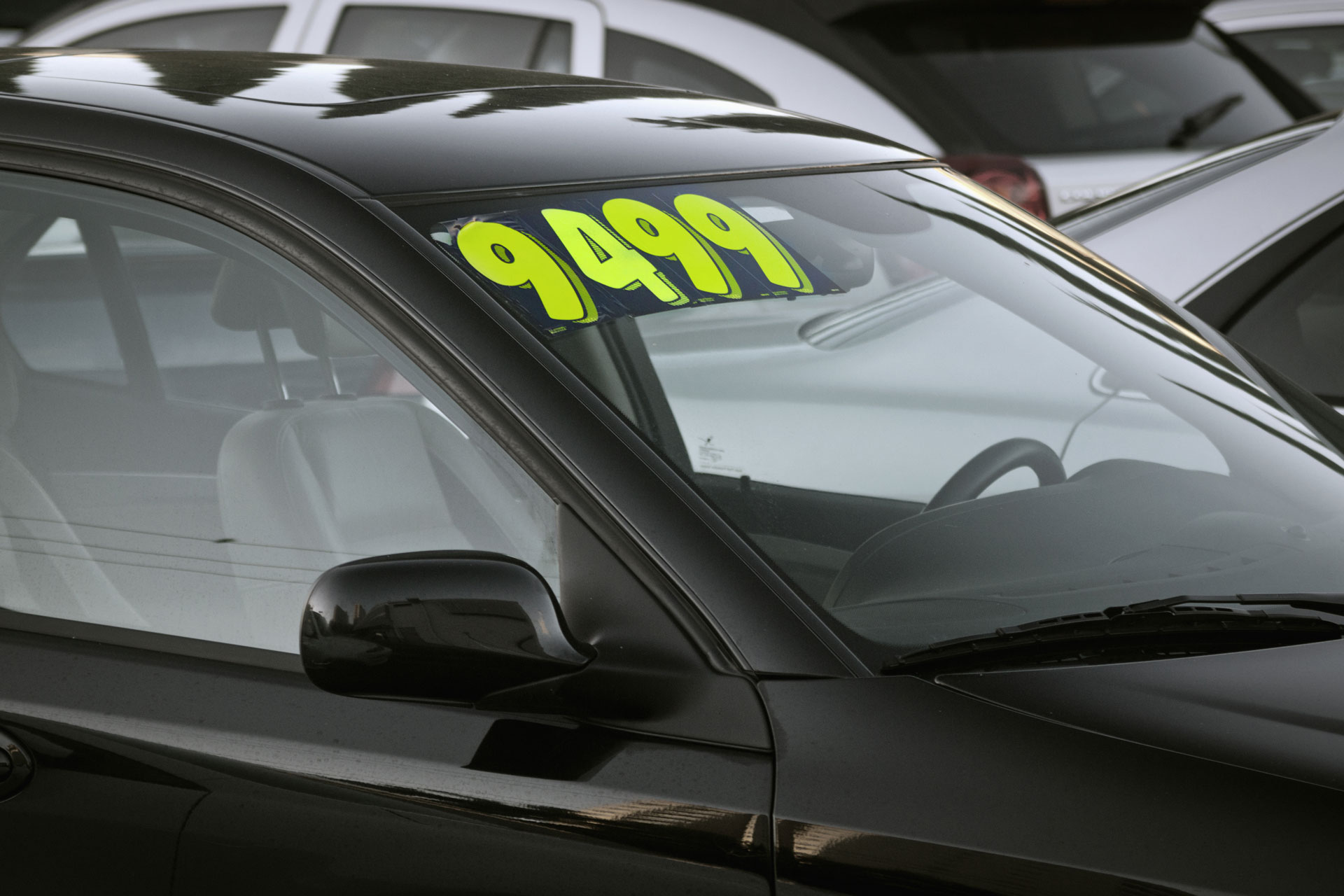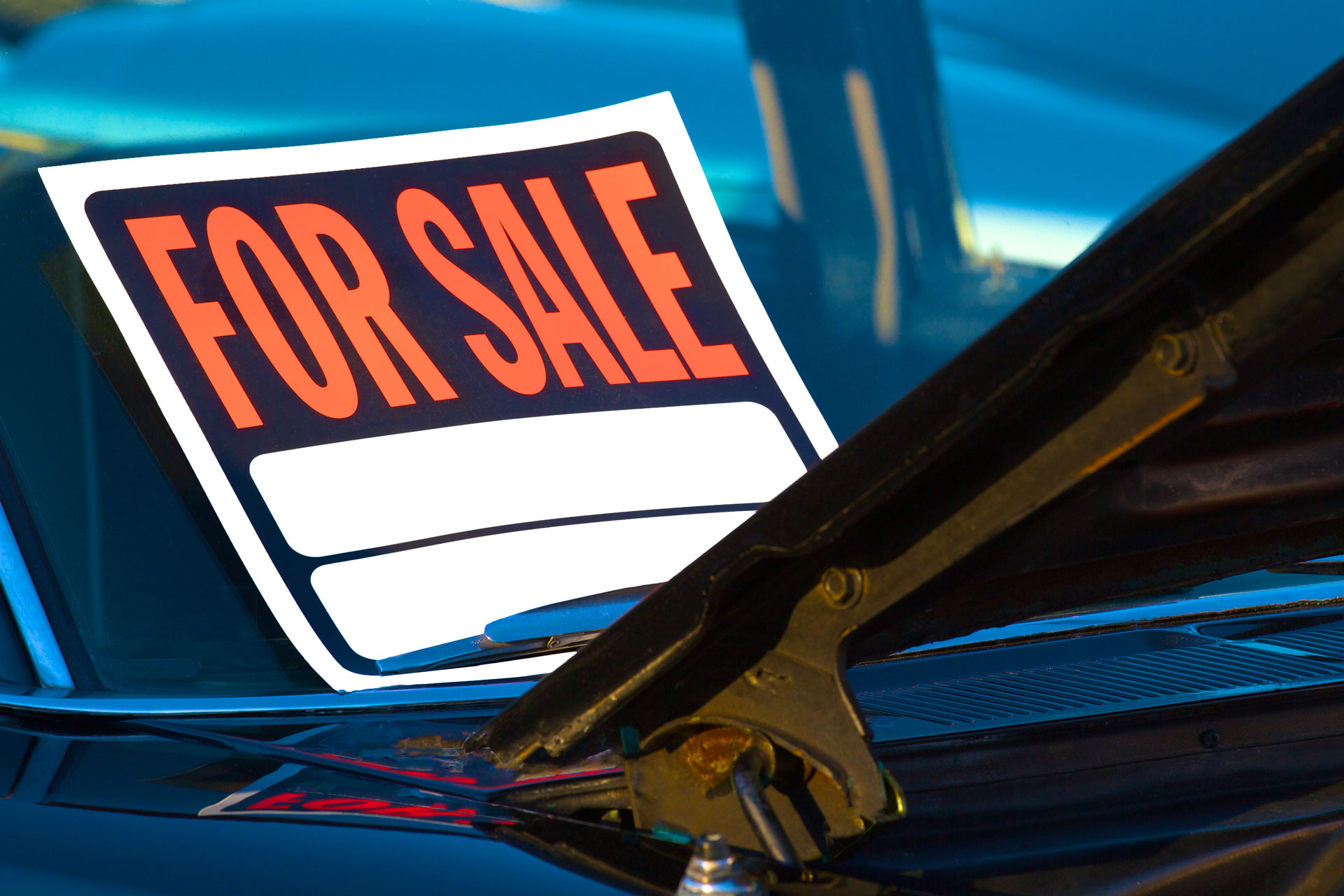Buying or Selling a Used Vehicle in Ontario
Requirements for Buying or Selling a Used Vehicle in Ontario

Selling a used vehicle
Before you can sell a used vehicle in Ontario, you should:
- purchase a Used Vehicle Information Package and read it through
- ensure that the Vehicle Identification Number (VIN) on your vehicle and the number on your permit (your green ownership document) match each other
- check your records to be sure that you do not owe any further payments on the vehicle
At the point of sale
On selling your vehicle, you must give the buyer:
- the Used Vehicle Information Package
- a signed Bill of Sale. This document includes your name, the buyer’s name and address, the date of the sale and the purchase price
- an Application for Transfer, completed and signed. You can find this document on the reverse side of your ownership permit, under the section on the vehicle
- if required, a certificate verifying the vehicle’s compliance with safety standards
- this must come from a licensed mechanic
- You can get this from a location with a green and white sign saying “Ontario Motor Vehicle Inspection Station”
You keep
- your licence plates, as they are assigned to the driver, not the vehicle
- the “plate portion” of your vehicle permit, indicating ownership
- this will be necessary for registering your plates on another vehicle
- remember to request a refund, if applicable, for any unused full months remaining on your plate stickers
How to find out if money is owed on a vehicle
You can get information on how much money, if any, you owe on your vehicle from the Used Vehicle Information Package.
In the case of a lien on your vehicle (a form of security designed to ensure that a vehicle’s owner pays any outstanding debt), you can contact the Ministry of Government and Consumer Services, Personal Property Security Branch, for more information:
Toronto area: 416-325-8847
Toll-free: 1-800-267-8847
TTY: 416-326-8866 (for speech/hearing impaired).
How to buy a used vehicle
Before you decide on a used vehicle to buy, you should:

- check the vehicle’s maintenance records and other key points of its history
- ensure that the seller is the legally registered owner
- make sure that the VIN on the vehicle and the one on the owner’s permit match each other
- obtain a Used Vehicle Information Package to check for information on lien/debt
- check for any obvious signs of damage that you can see, and also have your mechanic inspect the vehicle
- take the vehicle for a test drive
At the point of purchase
When purchasing the vehicle, ensure that the seller gives you:
- the vehicle portion of the owner’s permit with the back of the section completed
- the Used Vehicle Information Package and the Bill of Sale, which includes the name of the seller and purchase price.
- Both the buyer and seller must sign and date the Bill of Sale
Registration for a used vehicle
Within 6 days of purchasing a used vehicle, you must register your name as the new owner.
You can register your vehicle at a ServiceOntario centre. Be sure to bring the following documents:
- proof of insurance
- your Ontario Driver’s Licence
- used vehicle information package (UVIP)
- bill of Sale (if you wish, you can use the bottom of the used vehicle information package, which is designed for this purpose)
- Safety Standards Certificate (SSC), if applicable
- your owner’s permit with the Application for Transfer section on the back completed
- a current odometer reading
Bill of sale
Your bill of sale for purchasing a used or new vehicle must include the following information:
- vehicle identification number (VIN)
- make, year and power source (gas, diesel, electric) for the vehicle
- body type, colour and model (if available)
- purchase price (including any taxes collected and the HST/GST number if applicable)
- Certain exemptions may apply in some situations. For example, if a person transfers ownership of a vehicle to a family member as a gift, the Sworn Statement for a Family Gift of a Used Motor vehicle in the Province of Ontario is required. This form is available online through the ServiceOntario.ca website or in person at a Service Ontario centre.
- name, address and signature of either the current owner/dealer or the leasing company (seller)
- name and address of the purchaser of the vehicle
- sale/purchase date
The bill of sale can be handwritten, but it must be an original document, not a copy. The Ministry of Transportation will also accept a pre-printed bill of sale if the HST/GST number is handwritten.
- Photocopies or facsimiles (faxes) of bills of sale are acceptable if:
- Staff at a Service Ontario centre view both the original and a photocopy made at the location
- The seller sends the facsimile directly to the ServiceOntario centre
- Other photocopy or facsimile versions of the bill of sale will not be accepted
- Any bill of sale completed by a company or a dealer must be on the company’s or dealer’s letterhead
Fees
Certain fees accompany vehicle registration. These fees may vary, based on the owner’s location, the vehicle class and renewal term.
Taxes for used vehicles
Who: The buyer is responsible for paying the sales tax on registering as the new legal owner of the vehicle. The sales tax does not go to the seller.
Amount: Normally, buyers in Ontario pay 13% RST. The specific amount of money paid depends on either the vehicle’s purchase price or its wholesale value, whichever is greater.
Appraisals: Vehicles 20 years old or older must receive an appraisal. More information on this step is available on the Ministry of Finance’s Specified Vehicles web page.
Tax exemptions: You are exempt from paying sales tax if you are:
- transferring the vehicle as a gift to a close family member
- a qualifying diplomat or Status Indian
Determining the wholesale value of your vehicle
The Canadian Red Book, which lists wholesale and retail values of used vehicles, is an industry standard. It is used by car dealers, insurance companies and other provincial governments besides Ontario’s.

The values listed in the book are based on an average of prices paid for vehicles of the same year, make and model. These calculations do not include:
- optional equipment
- condition of the vehicle
- mileage
Buyers and sellers should remember that the assessed value can change between the publication of the most recent Used Vehicle Information Package and the day when ownership of the vehicle is transferred.
Paying less than the Canadian Red Book value
If you paid less for your vehicle than the value listed in the Canadian Red Book, you can still get the vehicle appraised before taking ownership.
If the results of the appraisal support a lower price than the value listed in the Canadian Red Book, your taxes will be based on the higher of the two prices.
Emissions test
Testing heavy-duty diesel vehicles
For transferring ownership of any used heavy-duty diesel vehicles manufactured before the current year, it is necessary to obtain a valid emissions test pass when they are sold.
Vehicles in this category include transport trucks, pickup trucks, delivery vans, buses, tow trucks, dump trucks and cement trucks.
Buying or selling light-duty vehicles and heavy-duty non-diesel vehicles
As of April 1, 2019, an emissions test is no longer required for light-duty passenger vehicles (most cars, vans, SUVs and light trucks) and heavy-duty non-diesel vehicles.
